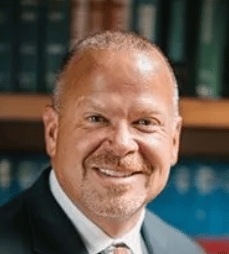 One of the most persistent problems in the United States is the addiction to and the abuse of drugs, both illegal and legal, and one of the most serious addiction and abuse problems involves opioid painkillers. Thus, the scope and impact of physicians overprescribing opioids is quite vast, as a 2014 National Institute on Drug Abuse (NIDA) letter addressed to the United States Congress clearly illustrates. Drug overdoses are now the leading cause of deaths of people younger than fifty years old.
One of the most persistent problems in the United States is the addiction to and the abuse of drugs, both illegal and legal, and one of the most serious addiction and abuse problems involves opioid painkillers. Thus, the scope and impact of physicians overprescribing opioids is quite vast, as a 2014 National Institute on Drug Abuse (NIDA) letter addressed to the United States Congress clearly illustrates. Drug overdoses are now the leading cause of deaths of people younger than fifty years old.
People throughout the country have been trying to find a solution to the addiction problem, and that solution may be originating from inside jails, as opposed to treatment and research centers on the outside.
Some Kentucky jails, such as Kenton County Jail and its Unit 104, operate very differently than more traditional places of incarceration. Inmates follow established guidelines but make their own rules, which they follow, and by following their own rules they have time for actual treatment, General Education Development (G.E.D.) courses, twelve-step programs, and more. In addition, the inmates themselves keep the peace, remind each other to stay on the path, help each other if they stray from the path, perform janitorial jobs, graciously greet new arrivals, etc.
The most impressive result, however, might be Unit 104’s success in the treatment of opiate addiction. Its members go through intense recovery programs, and upon leaving the jail are given “a Vivitrol shot (which blocks the effects of opiates for one month and is associated with reduced cravings), connections to jobs, sober living houses, 12-step meetings, recovering-addict mentors and more.” The rehabilitation programs Kentucky has employed have had marked success: a much lower recidivism rate, and about a 50% decrease in drug use.
This new and different approach costs less money, too. Since the inmates run their own pods, it costs nothing extra to clean them. Furthermore, much of the additional help for recovering addicts is covered under Medicaid, placing less of a burden on tax payers to fund programs through the jails.
Drug addiction is a serious problem, and sending addicts to jail or prison first and then external treatment centers is not necessarily working. Perhaps a better solution is to offer addicts more effective treatment inside jail. That method will not work for every state, county, or person – but it might be nice to try here in Tennessee.
If you or a loved one is in legal trouble due to injuries and/or criminal charges, the Law Office Bryan E. Delius is here to help. We are proud to serve Sevierville, Gatlinburg, Seymour, and Pigeon Forge. To work with an experienced Sevierville drug charge attorneys, please call us at (865) 428-8780 or fill out our contact form.

Attorney Bryan E. Delius was born and raised in Sevier County, TN. He founded Delius & McKenzie more than 20 years ago, after receiving his JD from the University of Tennessee at Knoxville. He is admitted in Tennessee and in several federal court systems. Learn more about Bryan E. Delius.




